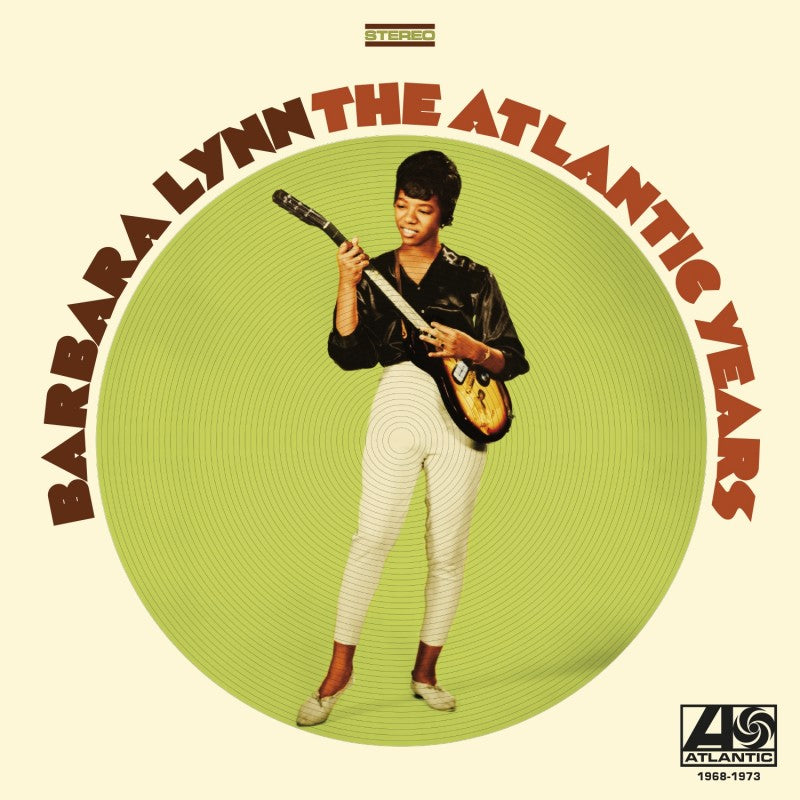Barbara Lynn – The Atlantic Years LP Run Out Groove
$ 24,98 Original price was: $ 24,98.$ 14,99Current price is: $ 14,99.
Barbara Lynn Ozen is an American rhythm and blues guitarist, singer and songwriter born in Beaumont, Texas and played piano as a child but switched to guitar, which she plays left-handed, inspired by Guitar Slim, Jimmy Reed, Elvis Presley and Brenda Lee. She is best known for her R&B chart-topping hit “You’ll Lose A Good Thing.” In 2018, Lynn received the National Heritage Fellowship. She performed in local clubs in Texas, where singer Joe Berry introduced her to Huey P. Meaux who ran Sugarhill Recording Studio and several labels in New Orleans. Her first single, “You’ll Lose A Good Thing,” co-written by her and Meaux, was recorded at Cosimo Matassa’s J&M Studio with session musicians including Dr. John and was released by Jamie Records in 1962. It was a #1 US Billboard R&B chart hit and Top 10 Hot 100 hit. The song was later recorded by Aretha Franklin and became a country hit for Freddy Fender.
Unusual for the time, Lynn was a female African American singer who both wrote most of her own songs and played a lead instrument. Soon Lynn was touring with Gladys Knight, Stevie Wonder, Smokey Robinson, Dionne Warwick, Jackie Wilson, Sam Cooke, Otis Redding, James Brown, Al Green, Carla Thomas, Marvin Gaye, Ike & Tina Turner, The Temptations and B.B. King. She appeared at the Apollo Theater, twice on American Bandstand. In 1965 she had her song, “Oh Baby (We’ve Got A Good Thing Goin’)” (1964) covered by the Rolling Stones on their album The Rolling Stones Now! in the US and Out Of Our Heads in the UK.
She signed with Atlantic Records in 1967 and recorded Here is Barbara Lynn in 1968. Dissatisfaction with poor promotion and having three children in 1970 largely contributed to her decision to retire from the music business for most of the 1970s and 1980s. In 1994 she recorded her first studio album for over 20 years. In 1999, she was given a Pioneer Award by the Rhythm and Blues Foundation. In 2002, Moby sampled Lynn’s “I’m A Good Woman,” on his album “18.” She appears in the 2015 documentary film, “I Am The Blues.” In 2018, Lynn received the National Heritage Fellowship Award.
Fast Shipping and Professional Packing
We offer a broad range of shipping options due to our long-running partnerships with UPS, FedEx and DHL. Our warehouse employees will pack all goods to our exacting requirements. Your items are carefully inspected and secured properly prior to shipping. We ship to thousands of customers every day from all over the world. This demonstrates our dedication to becoming the largest online retailer in the world. Warehouses and distribution centres can be located in Europe as well as the USA.
Note: Orders that contain more than one item will be assigned a processing date depending on the item.
We will carefully examine all items before sending. Today, the majority of orders will be shipped within 48 hours. The expected delivery time will be between 3 and 7 days.
Returns
Stock is dynamic. It's not completely managed by us, since we have multiple entities, including the factory and the storage. The actual inventory can fluctuate at any time. It is possible that the stocks could be depleted after your order has been processed.
Our policy lasts 30 days. If you haven't received the product within 30 days, we're not able to issue a refund or an exchange.
To be eligible for a refund the product must be unopened and in the same state as when you received it. The item must be returned in its original packaging.
Related products
Vinyl
Vinyl
Acid Mothers Temple & Melting Paraiso U.F.O. – Hallelujah Mystic Garden Part 1 LP Important Records


































